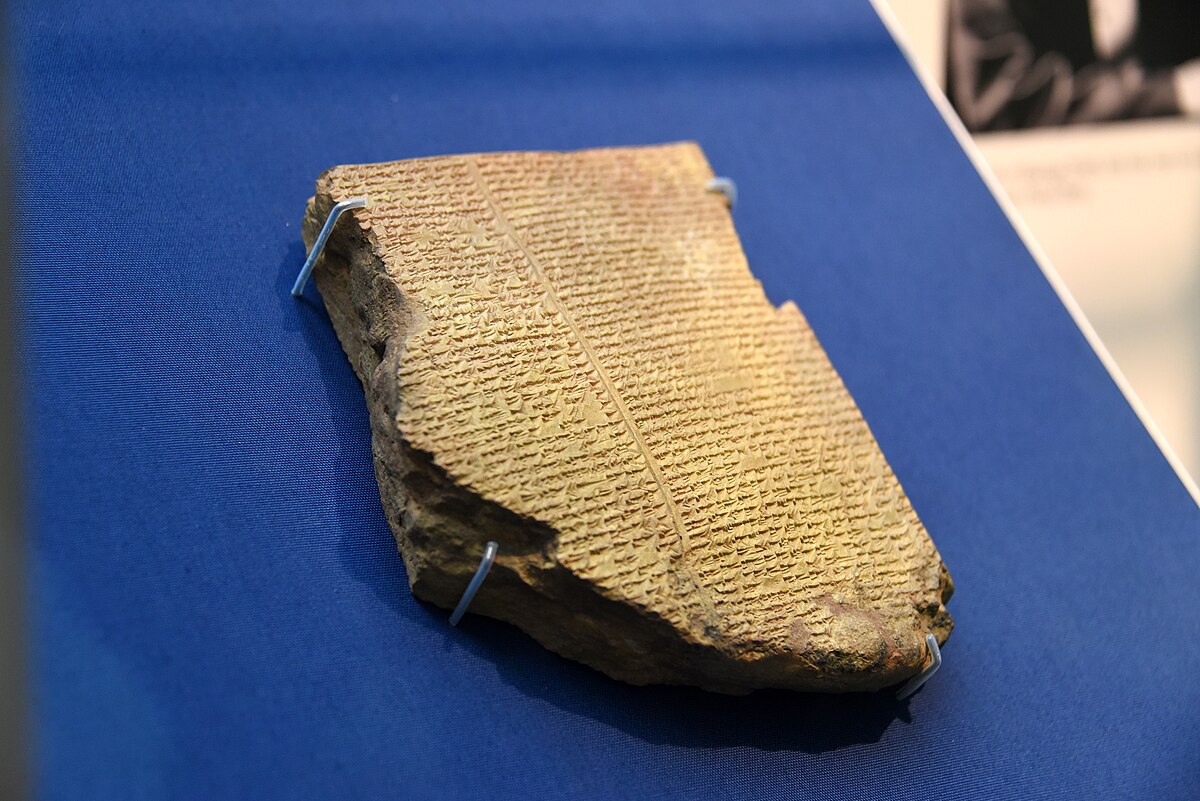Summary | Reading Guide | Discuss | Reviews | Beyond the book | Read-Alikes | Genres & Themes | Author Bio

A Novel
by Elif ShafakIn the ancient city of Nineveh, on the bank of the River Tigris, King Ashurbanipal of Mesopotamia, erudite but ruthless, built a great library that would crumble with the end of his reign.
From its ruins, however, emerged a poem, the Epic of Gilgamesh, that would infuse the existence of two rivers and bind together three lives.
In 1840 London, Arthur is born beside the stinking, sewage-filled River Thames. With an abusive, alcoholic father and a mentally ill mother, Arthur's only chance of escaping destitution is his brilliant memory. When his gift earns him a spot as an apprentice at a leading publisher, Arthur's world opens up far beyond the slums, and one book in particular catches his interest: Nineveh and Its Remains.
In 2014 Turkey, Narin, a ten-year-old Yazidi girl, is diagnosed with a rare disorder that will soon cause her to go deaf. Before that happens, her grandmother is determined to baptize her in a sacred Iraqi temple. But with the rising presence of ISIS and the destruction of the family's ancestral lands along the Tigris, Narin is running out of time.
In 2018 London, the newly divorced Zaleekah, a hydrologist, moves into a houseboat on the Thames to escape her husband. Orphaned and raised by her wealthy uncle, Zaleekah had made the decision to take her own life in one month, until a curious book about her homeland changes everything.
A dazzling feat of storytelling, There Are Rivers in the Sky entwines these outsiders with a single drop of water, a drop which remanifests across the centuries. Both a source of life and harbinger of death, rivers—the Tigris and the Thames—transcend history, transcend fate: "Water remembers. It is humans who forget."
Elif Shafak's novel There Are Rivers in the Sky follows three disparate individuals separated by time and location. As the characters' lives unfold on the pages of this remarkable book, readers gradually learn how they're tied together, with the last pieces falling into place at the very end of the story. Shafak begins her tale with a sentient drop of water falling on King Ashurbanipal of Ninevah (reigned 669–631 BCE). The variability yet permanence of water is a major theme. "While it is true that the body is mortal," the author writes, "the soul is a perennial traveler — not unlike a drop of water." Later, "Many kings have come and many kings have gone…never forget the only true ruler is water," and, "Women are expected to be like rivers — readjusting, shapeshifting." Shafak's writing is lyrical, bordering on poetic, as she weaves this theme into her narrative...continued
Full Review
 (820 words)
(820 words)
(Reviewed by Kim Kovacs).
 There Are Rivers in the Sky by Elif Shafak begins with the story of King Ashurbanipal (c. 685–631 BCE) of Ninevah, an ancient city on the eastern bank of the Tigris in part of what is now Mosul, Iraq. Although cruel even by the standards of his day, Ashurbanipal valued learning, and sometime around 647 BCE he built a library to house the collective knowledge of the past. At the time Ninevah was sacked in 612 BCE, the library contained thousands of cuneiform tablets.
There Are Rivers in the Sky by Elif Shafak begins with the story of King Ashurbanipal (c. 685–631 BCE) of Ninevah, an ancient city on the eastern bank of the Tigris in part of what is now Mosul, Iraq. Although cruel even by the standards of his day, Ashurbanipal valued learning, and sometime around 647 BCE he built a library to house the collective knowledge of the past. At the time Ninevah was sacked in 612 BCE, the library contained thousands of cuneiform tablets.
Cuneiform is a system of writing believed to date back to around 3500 BCE. The name comes from cuneus, the Latin for wedge, since the characters are largely comprised of wedges. It was developed by the ancient Sumerians of Mesopotamia, in southwestern Asia ...

If you liked There Are Rivers in the Sky, try these:

by Olivia Wolfgang-Smith
Published 2025
A gorgeously written and irresistibly intimate queer novel that follows one family across four generations to explore legacy and identity in all its forms.

by Daniel Mason
Published 2024
A sweeping novel about a single house in the woods of New England, told through the lives of those who inhabit it across the centuries—a daring, moving tale of memory and fate from the Pulitzer Prize finalist and author of The Piano Tuner and The Winter Soldier.